Renovating our homes for energy efficiency is a key focus for public and social housing providers. To maximise the effectiveness of these renovations, we need to combine technical and social approaches. How can we more effectively involve tenants? What can help us to better integrate residents’ needs? And how should our engagement approaches evolve through different project phases? Our Sustainable Construction and Social Integration Topic Groups met together in Lyon, France, to explore these important questions. We were particularly pleased to hear inputs from the local housing provider, GrandLyon Habitat, about their initiatives involving tenants in renovation.
Lyon was the perfect location for our meeting. The La Confluence area has undergone a significant urban reconversion, transforming an isolated, industrial zone into a vibrant, dynamic neighbourhood. This transformation involved both the renovation of historic buildings and the integration new constructions. Resident involvement was therefore crucial to prioritising the needs and well-being of local communities.
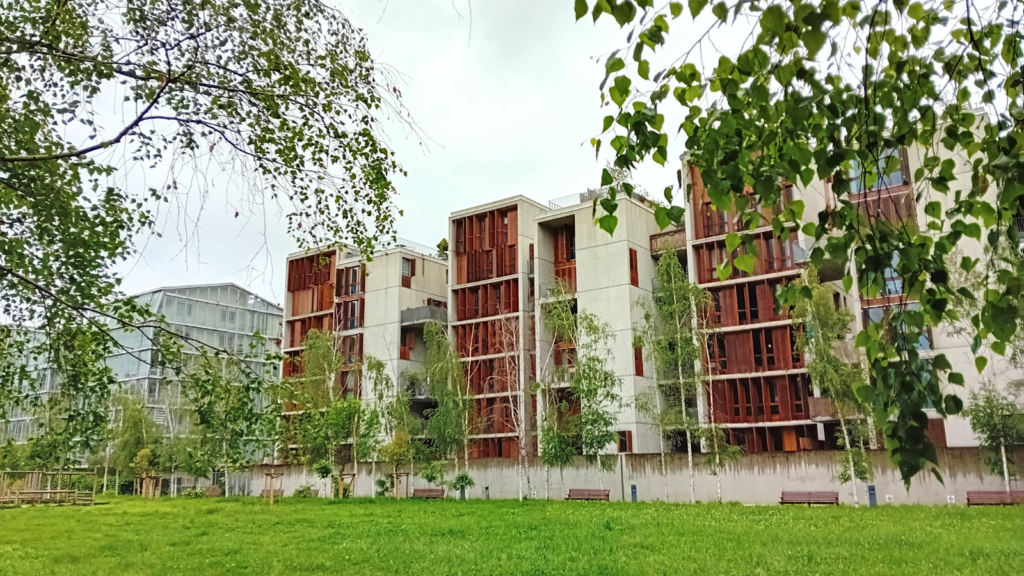
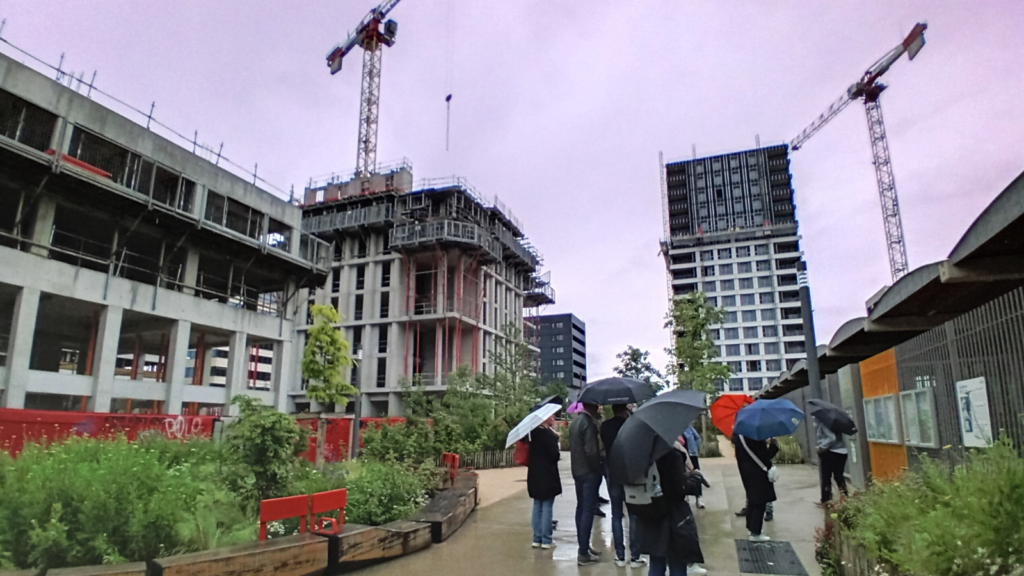
A unique opportunity for interdisciplinary collaboration
The joint Topic Group meeting was an excellent moment for interdisciplinary collaboration. It is important to avoid working in isolation and to draw on the expertise of our colleagues to enhance the positive impact of our work. This was a unique opportunity to have engineers, architects, social workers, site managers, energy managers, community development officers, housing managers – and others – from different European countries, all working together on the same challenge. We were also pleased to welcome Barbara Steenbergen from the International Union of Tenants and Dara Turnbull from Housing Europe, who both fed valuable inputs into our discussions.
Kicking off our meeting at the Maison de la Confluence, we heard how the transformation was carried out from the perspective of the local housing provider. Elodie Morel, Rehabilitation Service Manager of GrandLyon Habitat, outlined ambitious plans to renovate 3,000 homes between 2022 and 2026.
In light of the cost-of-living crisis and an increased sense of insecurity, regular communication, clear explanations, and meaningful resident involvement is key. Tenant engagement has been central to GrandLyon Habitat’s plans. Their methods are continually evolving, from pilot units during the study phase and co-designing outdoor spaces, to hosting tenant meetings at different project stages and conducting workshops to help residents get to grips with new facilities.
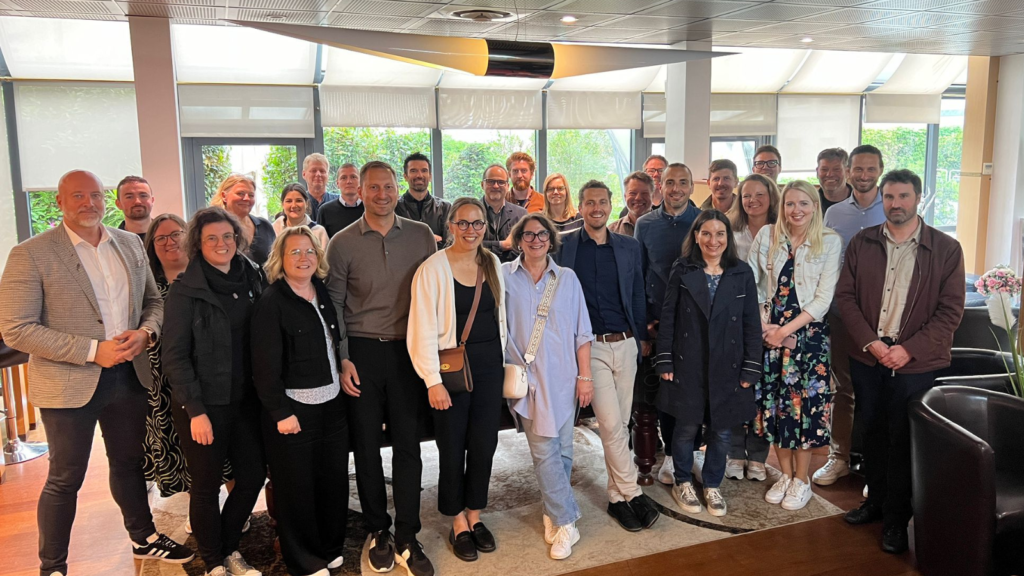
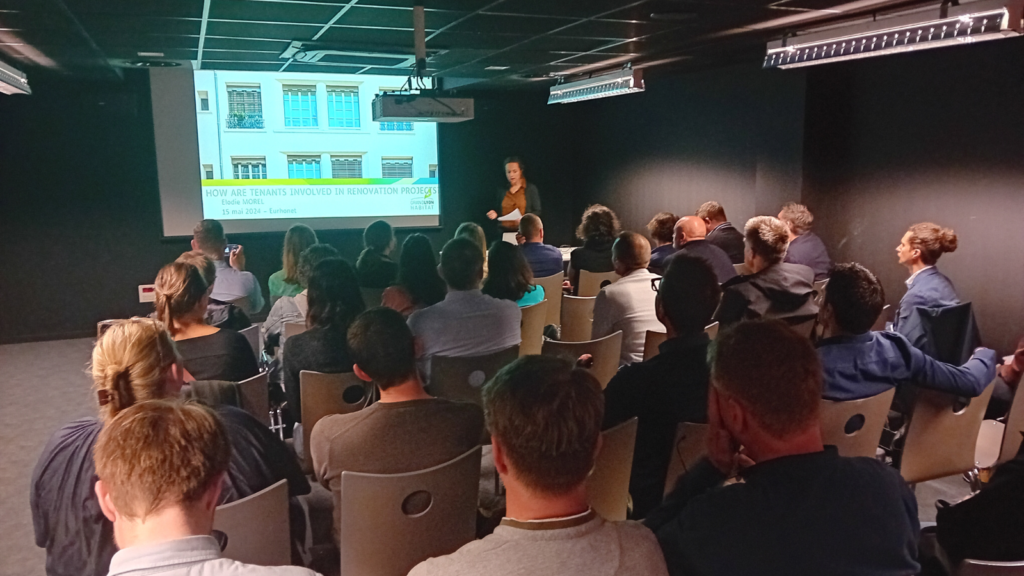
Quality of life and neighbourhood design
Our guided study visit around the La Confluence area allowed us to experience first-hand how quality of life, both present and future, has been integrated into neighbourhood design. We observed the use of bio-based materials, including an ambitious 16-floor wooden building under construction and a building made from mud bricks.
We also visited Cité Perrache, which has undergone significant renovation to reduce energy consumption by 70%. The building – comprising 275 flats managed by GrandLyon Habitat– has the label of ‘Remarkable Heritage of the 20th Century’. The aim of the project was therefore to reconcile energy efficiency with preservation of the building’s heritage and architectural features. Resident involvement included using connected tablets to monitor energy consumption, social breakfasts to update residents on the progress, and post-work awareness workshops.
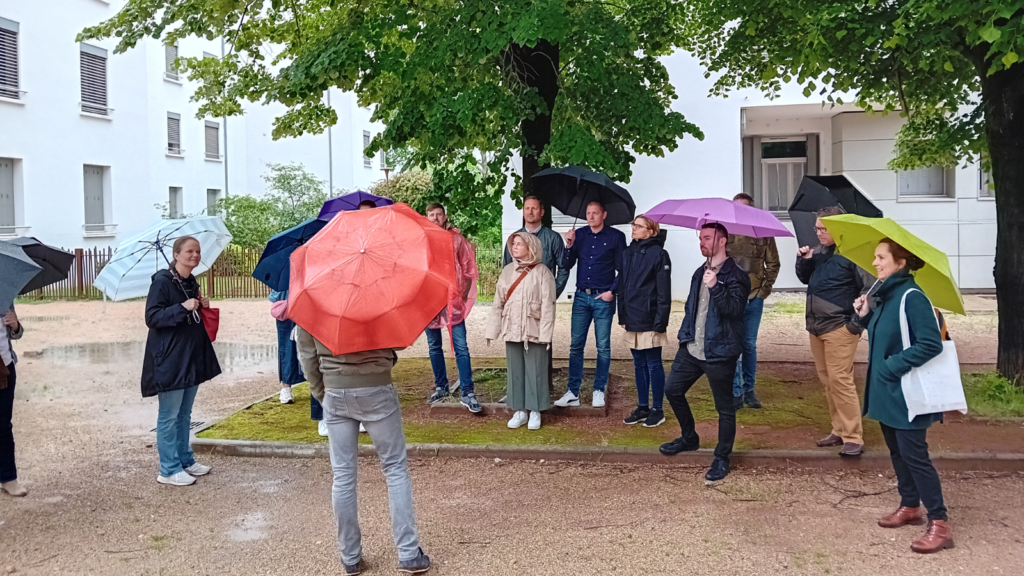
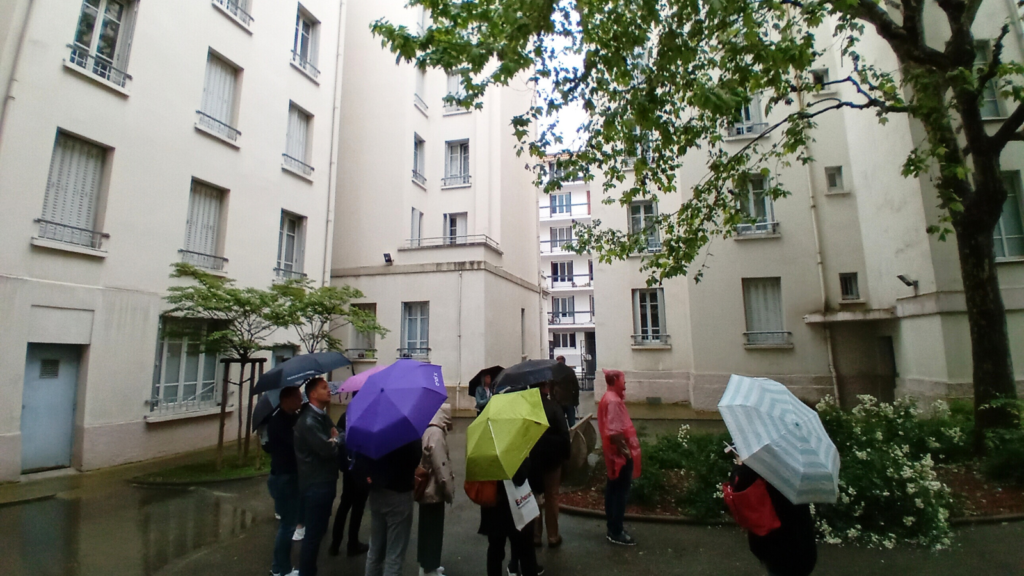
Workshop: involving tenants in renovation
The study visit and inputs from GrandLyon Habitat sparked plenty of ideas, questions, and discussions during our afternoon workshop, which aimed to consolidate a wide range of perspectives on engaging tenants through different phases of renovation. During the design phase, how do we involve tenants and integrate their needs when designing a renovation with high sustainability goals? Among the best practices highlighted, we emphasised the importance of early dialogue with tenants; the social aspect needs to be considered from the beginning and involve contributions from all generations. The feedback from these tenant dialogues should be communicated across different departments in our organisations in order to boost creativity and effectiveness.
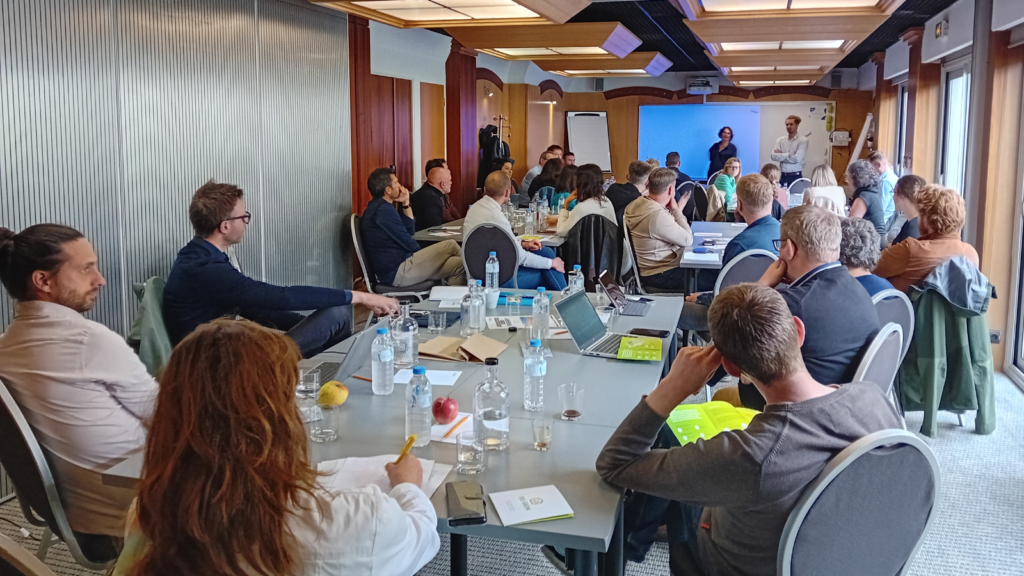
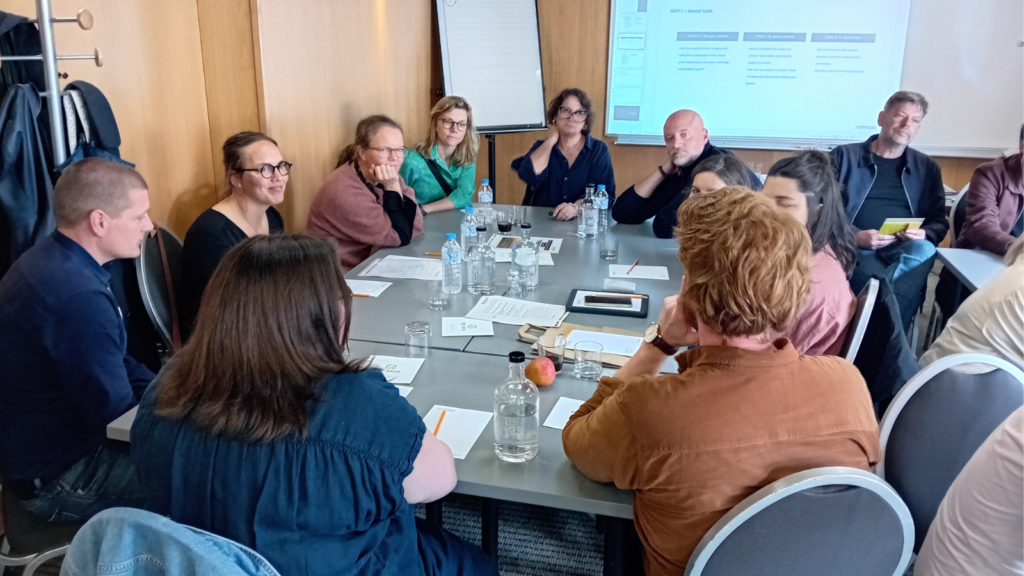
During the work phase, the goal should be to achieve high-quality work with minimal impact on tenants’ daily lives. To ensure tenants are kept informed, we discussed the importance of personal presence and a combination of online and offline communication. Onsite visits with both technical and social staff are crucial to effectively answer questions in a way that is accessible for all residents.
After completing the renovation, it is often necessary to help residents maximise the benefits of their new facilities. Translating information into different languages and using pictures to explain technical systems is key. Tenant competitions, such as the #WaterHack campaign by Bostadsbolaget, can also be an engaging way to maintain resident involvement.
By combining technical expertise with a strong social approach, we can ensure that our energy efficiency renovations not only meet sustainability goals but also enhance the quality of life of all residents. We will continue to support collaboration between our Topic Groups to maximise knowledge exchange between our members. Check out our other upcoming activities here.
Our special thanks go to Elodie Morel from GrandLyon Habitat, the colleagues from Maison de la Confluence, Barbara Steenbergen from IUT, Dara Turnbull from Housing Europe, our Topic Group leaders, and all the participants who took the time to come to Lyon and work on this important topic together.





